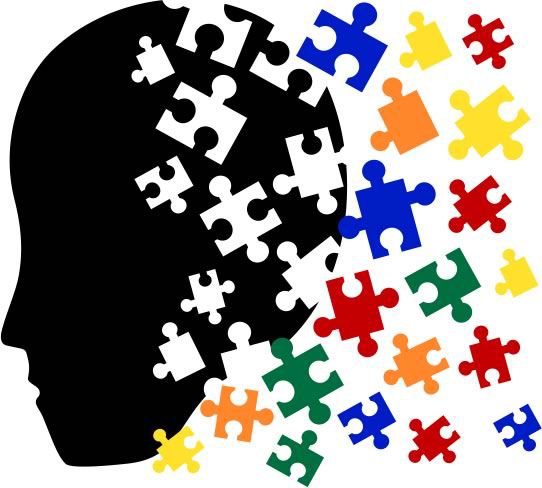In a previous post, we examined how mental health issues lead to “high conflict” divorces and custody battles. In this article, our Charleston divorce lawyers explain and examine what happens when you divorce someone who has a personality disorder.
Divorcing a Spouse with a Personality Disorder Leads to a High Conflict
Ask anyone who has been married to someone suffering from a personality disorder, and they will tell you that their marriage is marked by periods of high conflict. When you add the additional struggles that come from a divorce, then you have a recipe for EXPLOSIVE conflict between spouses and significant damage to children caught in the middle.
Chances are likely that in many high conflict cases, especially those involving custody, there is at least one party suffering from a personality disorder or other mental illness. Initially, the person suffering from mental health issues may appear and act “normal.” However, over time, their difficulty or their inability to function during a crisis (e.g. divorce) will surface.
It is crucial that attorneys and judges are able to identify and how to deal with parties who suffer from these disorders. Otherwise, if the lawyers and the court do not recognize the personality disorder or the mental illness, then they may inadvertently contribute to the conflict.
Dealing with a Spouse Who Has a Personality Disorder – Cognitive Distortions & False Statements
People with personality disorders view their world as a much more threatening place than most people do. Their worldview is generally adversarial‚ so they often see all people as either allies or enemies. Their thinking is often dominated by cognitive distortions‚ such as all or nothing thinking‚ emotional reasoning‚ personalization of benign events‚ minimization of the positive and maximization of the negative, and black and white thinking. They may form very inaccurate beliefs about the other person but cling rigidly to those beliefs when they are challenged because being challenged is usually perceived as a threat.
People with personality disorders also are more likely to make false statements. In a divorce‚ the person experiences rejection or confrontation much more deeply than most people. They have great difficulty healing and they may remain stuck in the denial stage‚ depression stage‚ or anger stage. As a result, they avoid acceptance of the divorce by trying to change or control the other person through lies used to keep the other person in the relationship or to punish the other person.
For People with Personality Disorders, Family Court is Their Stage
For a person suffering from a personality disorder, the family court becomes their stage. They focus intensely on their spouse’s behavior while avoiding any scrutiny of their own behavior. More often than not, these persons are enthusiastic about their claims, and their enthusiasm may be mistaken for sincerity. Their goals are to assign blame and to control or to punish the other spouse. They see the family court judge as an all-powerful figure who will help them accomplish these goals. They are also more likely to justify making false statements and accusations to achieve their goals. If the family court is not cautious about the claims made by a mentally ill spouse, then the court may unwittingly punish the parties’ children and the “innocent” parent by, for example, ordering supervised visitation or imposing financial sanctions.
The Beginning of Wisdom is to Call a Thing by Its Proper Name
Of course, family court judges and lawyers should not engage in “armchair” diagnoses of the parties to a divorce. However, they should educate themselves enough about various mental illness traits to recognize whether mental illness is fueling the parties’ litigation, whether a party’s claims against the other party should be viewed with skepticism, and whether a spouse or a parent may need professional diagnosis and recommendations for treatment.
Personality disorders are mental health conditions that impact how people handle their feelings and how they relate to others. Personality disorders are present in approximately 10 to 15% of the adult population. Some disorders, such as acute distress disorder, have a short duration ranging from a few days to a few weeks. Some disorders are not constant but are recurring such as major depression. Lastly, some disorders, such as borderline personality disorder, last a lifetime even with treatment.
Personality disorders are defined by the Diagnostic and Statistical Manual of Mental Disorders, 4th Edition (DSM-IV) as an “enduring pattern[s] of inner experience and behavior” that are sufficiently rigid and deep-seated cause repeated conflicts with the person’s social and occupational environment. According to the DSM-IV, to be classified as a personality disorder, these dysfunctional patterns must be considered as nonconforming or deviant by the person’s culture and cause significant emotional pain and/or difficulties in relationships and occupational performance. Also, the person typically views their disorder as being consistent with his or her self-image (ego-syntonic) and may blame others for their societal and occupational problems.
Cluster B Personality Disorders – Relationship Destroyers
The DSM-IV divides personality disorders into 3 groups, or “clusters”:
Cluster A – Individuals who have odd, eccentric behaviors. Paranoid, Schizoid, and Schizotypal Personalities.
Cluster B – Personalities that are highly dramatic, both emotionally and behaviorally. Antisocial, Borderline, Narcissistic, and Histrionic Personality are in this group.
Cluster C – Personalities characterized by being anxious and fearful. Avoidant, Dependent, and Obsessive-Compulsive Personalities fall into this cluster.
Overall, the largest number of personality disorders falls into Cluster B. Cluster is present in approximately 9 % of the adult population. Further, Cluster B contains those individuals who cause the most damage to social and personal relationships.
In Cluster B, these are the persons who display abusive, controlling, and manipulative behaviors:
Antisocial Personality Disorder (ASP) – This is a life-long disorder that begins before age 15. This disorder is prevalent in approximately 7.6 million people in the US (3.6 %) and is more common in men than women. These individuals display a pervasive pattern of disregarding the rights of others and the rules of society. These persons are characterized by a lack of regard for others’ feelings and rights and a lack of remorse for their behaviors and the harm they cause others. They may lie, behave violently or impulsively, disregard for the safety of others and themselves, and have problems with drug and alcohol use. These persons are intelligent, articulate, charming, and manipulative. They oftentimes are deceitful and adept at conning others.
The ASP spouse is not concerned with anyone else’s feelings except their own. They will use the divorce proceedings to abuse their family and are likely to threaten to quit their jobs to avoid support or to flee. Usually, a parent suffering from ASP does not make the best parent and has very little emotional attachment with their children. However, they are typically skilled at “mimicking” behaviors that portray them as caring, attentive, and loving spouses and parents.
Borderline Personality Disorder (BPD) – This disorder affects approximately 18 million people in the US (5.9 %). There are approximately three times more females diagnosed with BDP than males. These individuals display a pervasive pattern of intense yet unstable relationships, mood, and self-perception. Their impulse control is severely impaired. Common characteristics include panic fears of abandonment, black-and-white thinking, unstable social relationships, unstable self-image, impulsive and self-damaging acts such as risky driving, unsafe sex and promiscuity, gambling or shopping sprees, substance abuse, recurrent suicide thoughts and attempts, self-injury and self-mutilation, chronic feelings of emptiness, inappropriate yet intense anger, and fleeting paranoia. They lack emotional maturity. It is not uncommon for them to be highly deceptive regarding their behaviors. At the beginning of their relationship, they will essentially idolize their spouse. However, in time they will experience what is known as “splitting” at which point they will devalue their spouse and assign blame to them for all of life’s difficulties.
In dealing with someone who has BPD, it is not uncommon to experience an “emotional rollercoaster” ride with them. For example, one moment they will idolize their lawyer and shower them with praise and then, for no apparent reason, become disappointed and threaten their lawyer with professional misconduct claims when they perceive that their lawyer is not meeting their (oftentimes unrealistic) goals. The afflicted party will ignore appropriate boundaries by calling their lawyer at home during non-working hours or writing directly to the family court judge about their own lawyer or the other spouse. Their behaviors will appear to be highly inconsistent from one moment to the next, and they will perceive any attempt to set limits as a rejection of them. At one moment, they will place considerable demands on another person and, within the next moment, ignore the other person.
If you are dealing with a spouse who has BPD, there is a popular and helpful book on the subject entitled “Stop Walking on Eggshells: Taking Your Life Back When Someone You Care About Has Borderline Personality Disorder” We encourage you to read the book for a better understanding of BPD.
Histrionic Personality Disorder (HPD) – A pervasive pattern of excessive emotional display and attention-seeking. Individuals with this personality are excessively dramatic and are often viewed by the public as the “Queen of drama” type of individual. They are often sexually seductive and highly manipulative in relationships.
Narcissistic Personality Disorder – A pervasive preoccupation with admiration, entitlement, and egotism. Individuals with this personality exaggerate their accomplishments/talents, have a sense of entitlement, lack empathy or concern for others, are preoccupied with envy and jealousy, and have an arrogant attitude. Their sense of entitlement and inflated self-esteem is unrelated to real talent or accomplishments. They feel entitled to special attention, privileges, and consideration in social settings. This sense of entitlement also produces a feeling that they are entitled to punish those who do not provide their required respect, admiration, or attention.
What Can Be Done When You are Divorcing Someone Who Has a Personality Disorder?
Judges‚ lawyers‚ and family court counselors need to be trained in identifying personality disorders and how to treat them. As for the family court, it can help the situation by ordering the party into treatment. Considering that persons with personality disorders have a lifetime of denial and avoidance of self-reflection, the court should order an extended period of treatment, say at least twelve months, to deal with these deep-seated issues.
Therapists need to help clients challenge and clarify the person’s thinking about their own role in the dispute, the accuracy of their view of the other party, and their high expectations of the family court.
Finally, ‚ attorneys need to also challenge their clients’ thinking. Attorneys should not take their clients’ statements at face value. Also, lawyers should spend time encouraging their clients to focus on negotiating solutions instead of escalating blame.
Parting Thoughts
There is one important point to emphasize. Whether your role is that of a mediator, a lawyer, or a judge, do not mistakenly believe that you can somehow fundamentally change the beliefs and the behaviors of someone suffering from a personality disorder. Remember, these individuals experience “enduring patterns of inner experience and behavior” and, even if they are in treatment, are likely to deal with their condition for a lifetime. They experience cognitive distortions that impact their view of the world in negative ways. So when a person, such as a lawyer or judge, believes they are talking ABOUT the problem with the afflicted spouse, they are actually talking TO THE PROBLEM. At best, the most anyone can do is steer the person into long-term treatment and focus on ways to reduce the conflict between the parties and to negotiate resolutions without fueling the afflicted person’s desire to fight in family court.












